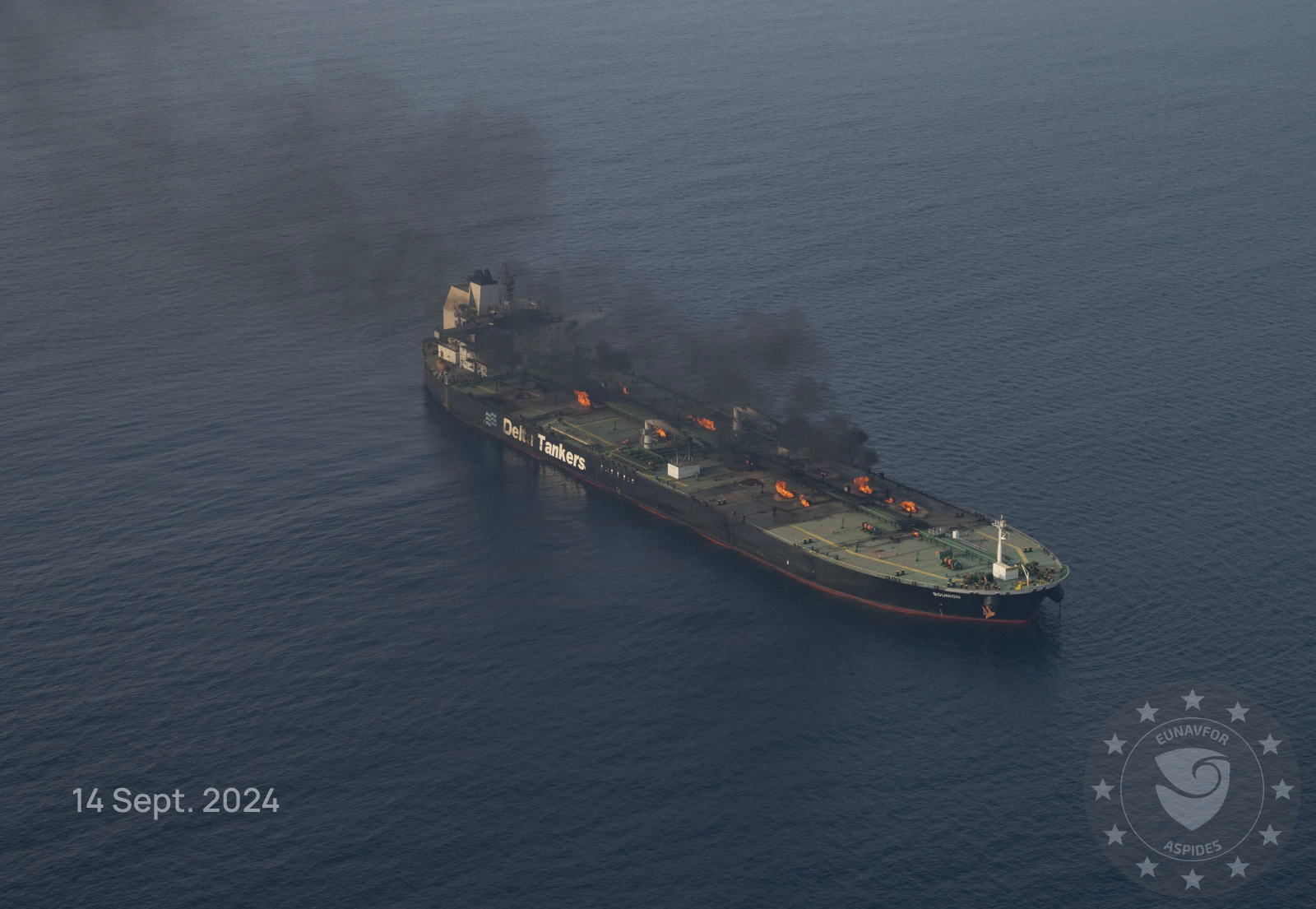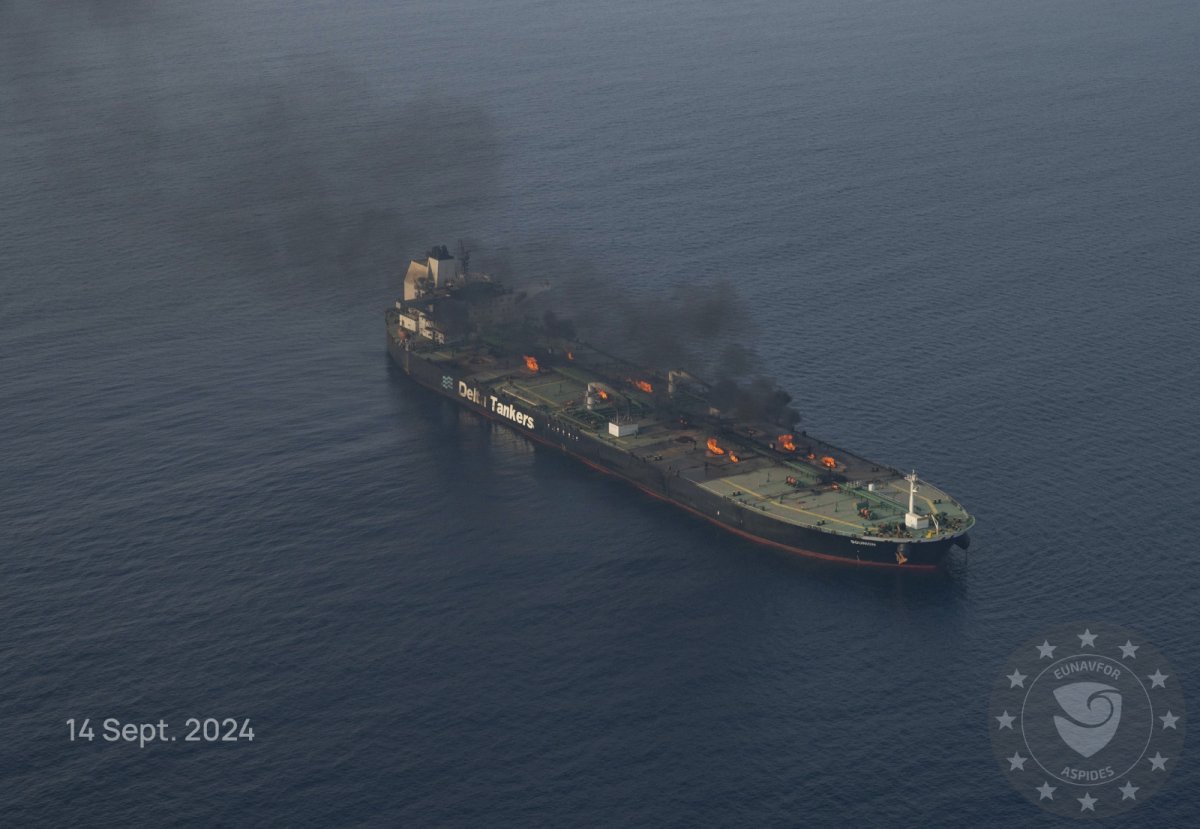
Yemen’s Houthi rebels have indicated they will now restrict their attacks in the Red Sea to vessels affiliated with Israel, a move that comes as a fragile ceasefire in Gaza enters its second day.
The announcement, made on Sunday in an email to shipping companies and other stakeholders, signals a shift in the Houthis’ strategy.
However, the move is unlikely to reassure international shipping companies that have been avoiding the region due to security concerns.
Why It Matters
The Red Sea corridor, a vital route for global trade connecting Asia with Europe, has seen a dramatic decline in traffic since the Houthis escalated their attacks.
The disruptions have severely impacted revenue for Egypt, which operates the Suez Canal, a key transit point for goods and energy shipments.

European Union’s Operation Aspides via AP
What to Know
The Houthis’ announcement, made through their Humanitarian Operations Coordination Center, said they would halt attacks on non-Israeli vessels that had been targeted since November 2023.
However, the promise is contingent on the “full implementation” of the ceasefire, and it remains uncertain whether the rebels will abide by it.
Why Have Houthi Rebels Been Attacking Ships in the Red Sea?
The Houthis did leave the door open for resuming attacks on the U.S. and the U.K. if they perceive aggression from these nations, both of which have carried out airstrikes against the rebels in response to their seaborne assaults.
Since the beginning of the Israel-Hamas war in October 2023, the Iran-backed Houthis have launched missile and drone strikes against more than 100 merchant vessels.

Ben Finley/AP
The militants have captured one vessel and sunk two, killing four sailors in the process. While some attacks have been intercepted by U.S. and European-led coalitions operating in the Red Sea, other missiles and drones have failed to reach their targets, including Western military vessels.
How Many Airstrikes Has the US Conducted Against the Houthis?
The Houthis have consistently maintained that their attacks are a response to Israeli actions in Gaza, but many of the vessels they have targeted have no direct ties to the conflict, including ships en route to Iran.
Although the frequency of Houthi attacks has slowed in recent weeks, there remains a significant risk of escalation.
The U.S. has conducted over 260 airstrikes against the Houthis, potentially weakening their offensive capabilities. However, the rebels continue to launch attacks aimed at Israel, which has vowed to retaliate against Houthi leadership in the event of further aggression.
What People Are Saying
The Houthis said in an email statement: “In the event of any aggression … the sanctions will be reinstated against the aggressor state. You will be promptly informed of such measures should they be implemented.”
Jakob P. Larsen, head of maritime security at BIMCO, the world’s largest shipping association, said: “The ceasefire is considered fragile. Even minor deviations from the ceasefire could lead to renewed hostilities, which would once again prompt the Houthis to target a wider range of international vessels.”
He added: “Uncertainty is further exacerbated by today’s inauguration of Trump. It remains unclear how the Trump administration will respond to the Houthi threat and whether it will consider additional punitive actions.”
What Happens Now
The Houthis may resume targeting international vessels if there are any deviations from the ceasefire.
The situation could become even more unpredictable with the inauguration of President-elect Donald Trump on Monday. If his administration re-designates the Houthis as a foreign terrorist organization, a move President Joe Biden had reversed, the conflict could intensify once again.
This article contains additional reporting from The Associated Press



